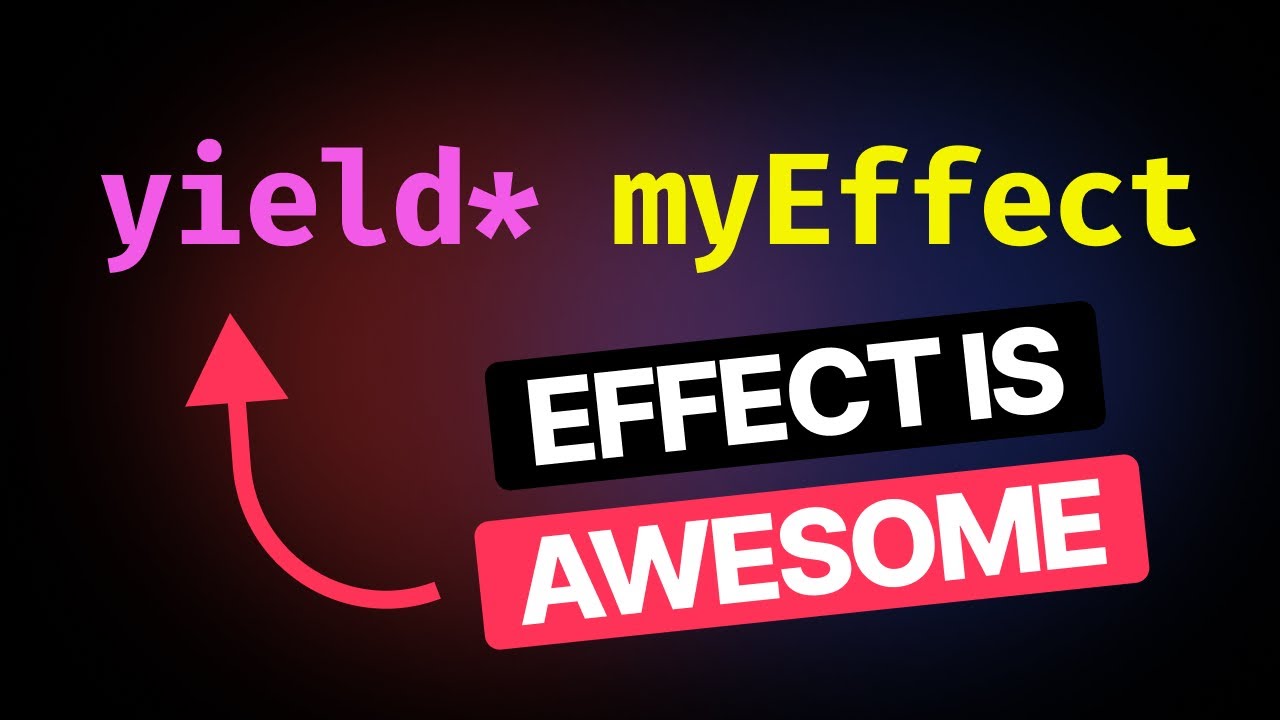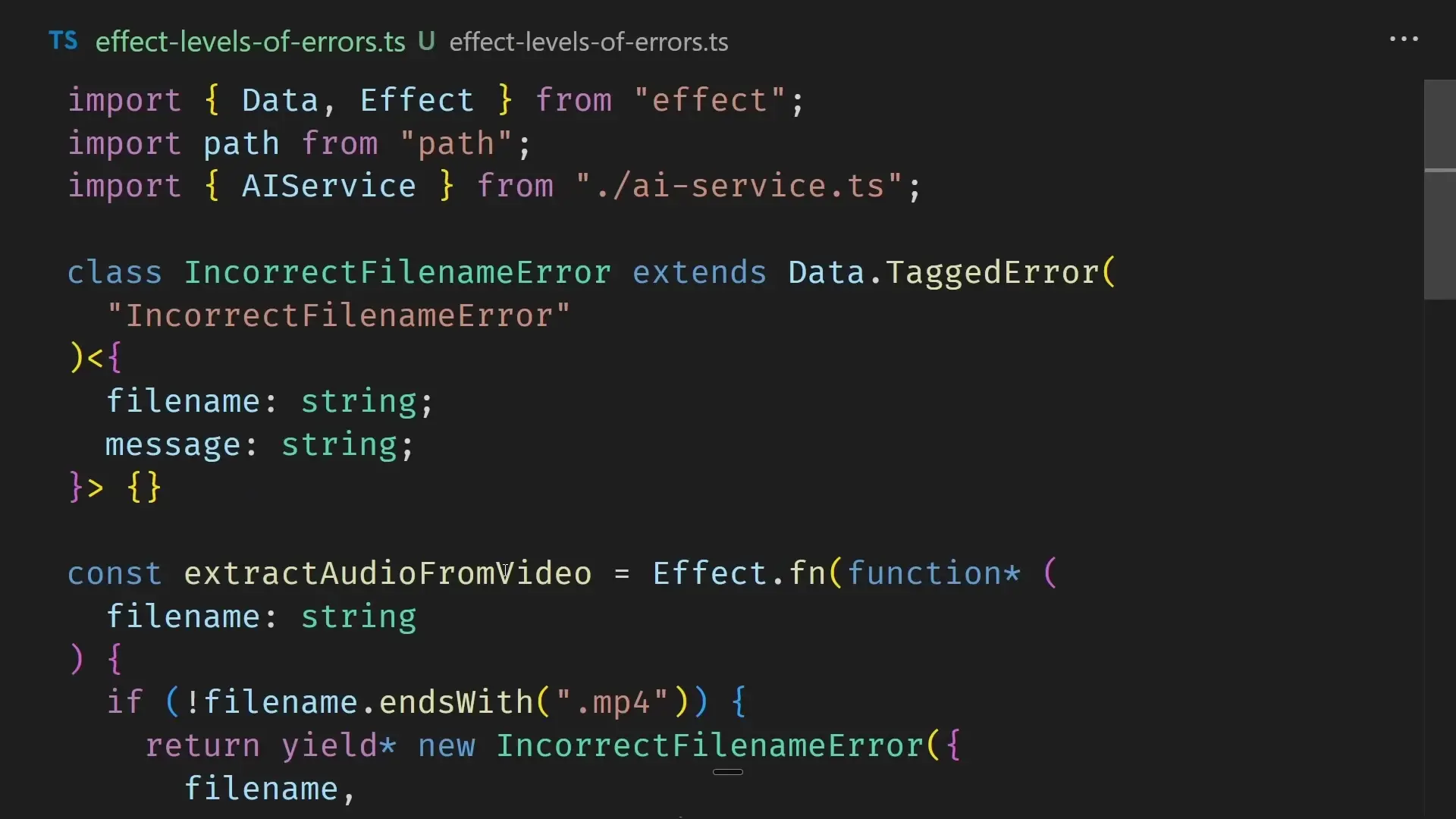
For developers working with TypeScript, finding the right libraries to enhance productivity and code quality is essential. One library that has been generating significant buzz in the TypeScript community is Effect - a powerful, albeit initially intimidating, library that brings robust type safety and functional programming patterns to your codebase.
First Impressions: The Syntax Challenge
Let's address the elephant in the room: Effect's syntax looks strange at first glance. Using generators, yield statements, and a programming style that feels almost like a separate language within TypeScript, it can be off-putting to newcomers. Many developers take one look at code like this and immediately close the tab:
const program = effect.gen(function* () {
const transactionAmount = yield* fetchTransactionAmount()
const discountRate = yield* fetchDiscountRate()
const discountedAmount = yield* calculateDiscount(transactionAmount, discountRate)
return discountedAmount
})However, just like how many developers initially recoiled at Tailwind's long class strings before embracing its productivity benefits, Effect's unusual syntax enables powerful capabilities that make it worth the learning curve.
Type-Safe Error Handling: A Game Changer
One of Effect's most impressive features is its approach to error handling. Unlike traditional try/catch blocks or even Promise-based error handling, Effect tracks errors at the type level throughout your entire call stack.
Consider this example of a function that extracts audio from a video file:
const extractAudioFromVideo = effect.gen(function* (fileName: string) {
if (!fileName.endsWith('.mp4')) {
yield* incorrectFileNameError({ fileName })
}
// Processing logic here
return 'audio-output.mp3'
})When you hover over this function in your IDE, you'll see something remarkable:

The type signature shows not just the return value (a string), but also which errors might occur (IncorrectFileNameError). This tracking persists across function calls, giving you complete visibility into all possible errors that might occur in your application flow.
This type-safe error handling allows you to:
- Never miss handling an error case
- Catch specific error types with autocomplete support
- Transform errors into success values when appropriate
- Handle errors at any level of your application
Dependency Injection: Simplifying Testing and Modularity
The second major feature that sets Effect apart is its elegant dependency injection system. Effect tracks not just return values and errors, but also the dependencies each function requires.
Here's how it works in practice:
// Define a service
class AIService extends effect.Tag('AIService') {
transcribeAudio(audioFile: string) {
// Implementation here
return effect.succeed('Transcription text')
}
}
// Use the service in your workflow
const workflow = effect.gen(function* () {
const AI = yield* AIService
const audioFile = yield* extractAudioFromVideo('video.mp4')
const transcription = yield* AI.transcribeAudio(audioFile)
return transcription
})When you attempt to run this workflow without providing an implementation of AIService, TypeScript will give you a compile-time error. This forces you to explicitly provide all dependencies:
// This won't compile without providing AIService
workflow.pipe(effect.runPromise) // Error!
// This works by providing the dependency
workflow.pipe(
effect.provideService(AIService, new AIService()),
effect.runPromise
)This approach makes testing incredibly straightforward. You can easily mock services for unit tests or provide real implementations for integration tests:

The dependency injection system encourages a development flow where you write business logic first, then implement the required services later. This separation of concerns leads to more modular, testable code.
Batteries Included: A Complete Ecosystem
Beyond error handling and dependency injection, Effect provides an extensive ecosystem of functionality:
- Resource management for automatically cleaning up resources
- Built-in observability with OpenTelemetry integration
- Type-safe configuration management
- Scheduling with a cron module
- State management, batching, and caching
- Concurrency control with a fiber model
- Streaming capabilities
- Comprehensive testing utilities
This extensive functionality means you can solve many common programming challenges without reaching for additional libraries.
Is Effect Right for Your Project?
While Effect offers powerful capabilities, it's not the right choice for every project. Consider these factors:
- Learning curve: Effect requires investing time to understand its paradigms
- Team familiarity: If your team isn't familiar with functional programming concepts, adoption may be challenging
- Project size: For small projects, Effect may be overkill
- Backend focus: While Effect can run in the browser, it's particularly well-suited for backend development
For complex backend applications where reliability, testability, and maintainability are priorities, Effect can be transformative. Its ability to track errors and dependencies at the type level leads to fewer runtime surprises and more robust code.
Getting Started with Effect
If you're interested in exploring Effect, here's how to get started:
npm install effectThen, start with simple examples before diving into more complex patterns. The official documentation provides comprehensive guides and examples to help you understand the library's concepts.
Conclusion
Effect's unusual syntax may be initially off-putting, but the benefits it provides - comprehensive type safety, elegant error handling, powerful dependency injection, and extensive functionality - make it worth considering for your TypeScript projects.
Like many powerful tools, Effect requires an investment to learn, but can pay significant dividends in code quality, maintainability, and developer productivity. If you're building complex TypeScript applications, particularly on the backend, Effect deserves a place in your toolbox.
Let's Watch!
Why Effect Library is Revolutionizing TypeScript Development
Ready to enhance your neural network?
Access our quantum knowledge cores and upgrade your programming abilities.
Initialize Training Sequence